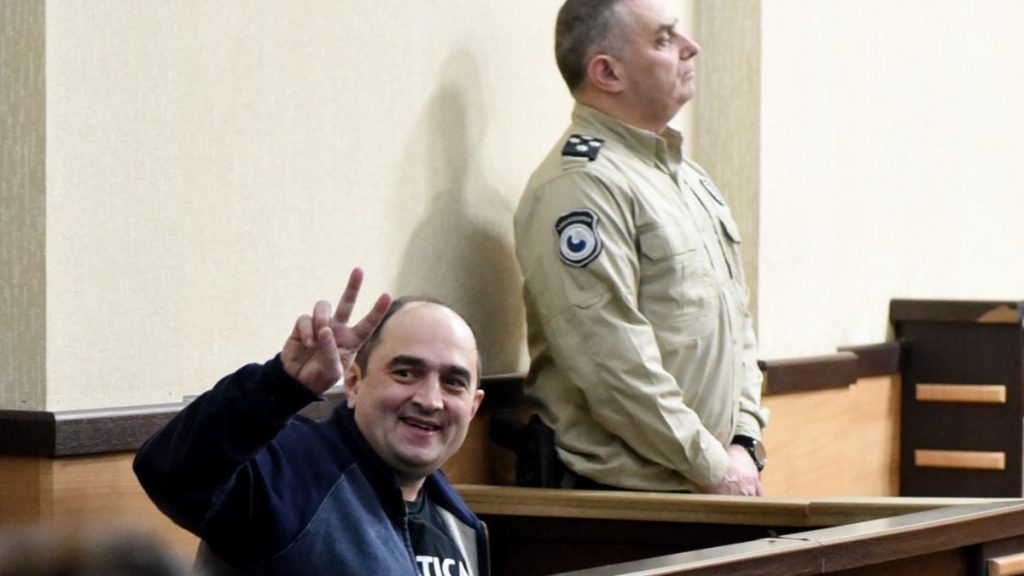Politicised justice, attack on media, electoral violations - Georgia in US State Department report
US State Department human rights report
On March 30, the US Department of State released its annual report on human rights across the world.
Georgia is mentioned as well. The report highlights serious problems with the independence of the country’s judiciary, as well as politically motivated detentions, investigations and prosecutions.
This refers to politically motivated cases against the founder and director of the opposition TV channel, the leaders of the Lelo party and those who were detained during the June 20, 2019 protests. The report also mentions problems with the independence of the judiciary.
The report also examines unlawful interference into people’s privacy, lack of respect for the freedom of peaceful assembly and association; and crimes involving violence or threats against LGBT individuals.
- Police lack control, discriminations – HRW report on Georgia in 2020
- Oligarchic influence and politicized courts – Georgia in new Freedom House report
Politically motivated cases
The report pays special attention to the case of one of the founders of the Mtavari Arkhi TV channel, Giorgi Rurua. The report says that according to an agreement between the authorities and the opposition dated March 8, 2020, the government was supposed to abandon politically motivated prosectuion, but despite the release of opposition leaders Irakli Okruashvili and Gigi Ugulava, Rurua is still in prison.
The report cites the observations and conclusions of non-governmental organizations in the Rurua case, which states that politically motivated persecution in Georgia has become an instrument of influence on media representatives.

In its report, the State Department pays attention to the affairs of other media representatives – the director general of the Mtavari channel Nika Gvaramia and the father of the founder of the Pirveli channel Vakhtang Tsereteli, as well as the affairs of Georgian politicians, leaders of the Lelo party Mamuka Khazaradze and Badri Japaridze.
The report also highlights the cases of those detained during the June 20 protests:
“In 2019, due to the lack of government responsibility towards journalists and protesters, the authorities disproportionately used force against them, in particular the police.”
Another problematic case which the authors of the report talk about is the abduction of Azerbaijani journalist, author of political investigations Afgan Mukhtarli. Hewas kidnapped in 2017 in the center of Tbilisi, where he lived while fleeing political persecution in his homeland.
Also, the annual report of the State Department talks about the so-called “cartographers case” – the arrest of two experts – Iveri Melashvili and Natalia Ilyicheva, who participated in the process of delimitation and demarcation of the disputed section of the Georgian-Azerbaijani border. The authorities accused them of attempting to illegally transfer Georgian territory to Azerbaijan.
The State Department considers this case to be an example of unjustified detentions in Georgia.
According to the authors of the report, this case is considered by local public and political organizations as an example of political justice.
“Leading representatives of the ruling party linked this case to the elections, which further exacerbated these doubts. On November 30, the Tbilisi City Court upheld the order on preliminary detention (Melashvili and Ilyicheva), which, according to the defense, will be appealed. This incident occurred during the aggravation of the Nagorno-Karabakh conflict between Azerbaijan and Armenia, which further increased tensions in the threatening instability border region, ”the State Department said in a statement.
“Clan” in the judiciary and political justice
The report focuses on the judicial system. The authors talk about the existence of a “clan” that, they say, suppresses critical attitudes in the justice system and hinders the independence of the judiciary.
The report also mentions a report by Transparency International-Georgia, published on October 23, according to which a clan of “special” judges is at the head of the Georgian judicial system, which appoints judges for high-profile and high-profile cases.

Parliamentary elections
When it comes to assessing the parliamentary elections that took place in the country in October 2020, the US State Department relied heavily on the OSCE / ODIHR opinion. It is noted that “serious accusations of pressure on voters and blurring the boundaries between the ruling party and the state” significantly reduced confidence in the fair voting process. This was also influenced by:
“Abuse of administrative resources by the ruling party, intimidation of voters, their bribery, violation of the secrecy of the vote, creation of obstacles for journalists and local observers, as well as inaccurate counting of votes at precinct and district levels.”
The authors of the report also detail the incidents of attacks on political opponents during the election campaign and, in particular, directly on election day.
Freedom of the media
The State Department notes that a number of current criminal cases against media or their owners are political in nature. One of the sources of this assumption is the report of the Public Defender of Georgia and several non-governmental organizations.
The report also refers to physical violence against journalists during the election campaign and on election day.
Illegal surveillance
The State Department report also mentions surveillance of political opposition, and one example of this is the dissemination of personal tapes of opposition politician Eka Beselia, who opposed the appointment of judges loyal to the government:
“It is deeply troubling that some people have used illegal records to protect the interests of a clan of judges with significant powers in the judiciary.”



















